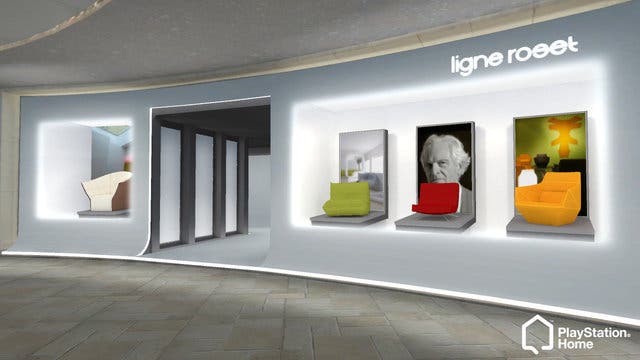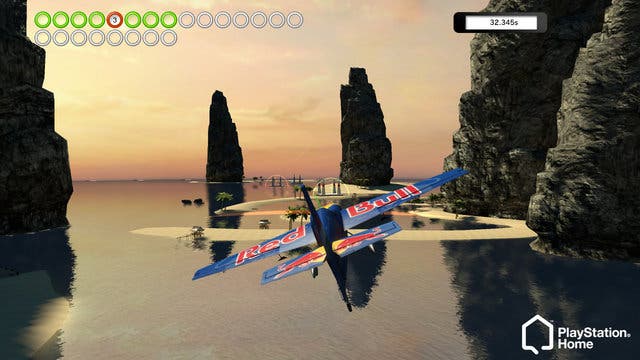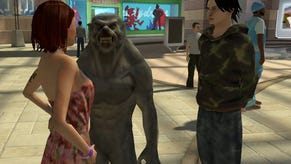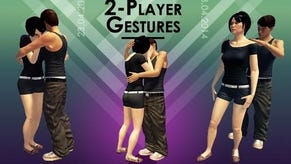PlayStation Home
Where the heart is?
One of the stranger things about PlayStation Home - and there are a great many strange things about PlayStation Home - is the experience of being in a virtual world without the slightest hint of fantasy about it.
It's hardly real life, of course. We don't live in a permanently sunny West Coast d'Azur lesiure complex, spend our days jogging between the bowling alley and the mall, or stand around in cinema lobbies doing the funky chicken in slouch pants. But this a purely contemporary, commercial, aspirational kind of escapism; a marketing fantasy.
So everyone looks like a 20-something male in bland, high street casual fashion, because that's who everyone actually is. You can only do things you might do in real life - chat, watch film trailers, play a frame of pool, or maybe a videogame. Conceptually this makes sense. It's not alienating, it's easy to identify with, and the socialising and advertising are entirely in context. But you're left pondering the inevitable question: why would you want to spend any time here?
This dislocation combines with one of the other strange things about Home. It's a virtual world populated by console gamers, many of whom are familiar with the interactions and social etiquette of massively-multiplayer online games like World of Warcraft, or even tweenie hangouts like Habbo Hotel.
At the moment - and we must remember that Home's beta only went open to all today - it's an unruly melee of greasy flirting, spammed greetings and aimless A/S/L enquiries. Female avatars get attention everywhere, but in Home, they're absolutely mobbed, relentlessly shadowed, danced at and messaged. It doesn't help that most people don't have keyboards plugged in and aren't brave enough to use voice.

Communication was always going to be one of the biggest problems for a console virtual world. Sony's done a half-decent job in some respects. The preset phrases available on L1 are useful, although a few new additions are needed. Most conversations go something like this: "Hello." "Yes." "I have no keyboard."
The emotes and dances on L2 are animated a little cheesily and without conviction, but they pass a funny few minutes between mute friends and there are plenty of them. ("Good job they included a whole move set under the banner of "Disappointment"," said Eurogamer's head of cynical barbs, Ellie Gibson.)
Voice chat quality is poor, and chat functionality all-round is far distant from what any MMO player or Second Lifer might be used to. A particularly glaring omission is the ability to "whisper" - or send an instant, private text message without everyone in the vicinity seeing what you're saying. You either have to "phone" someone for a private voice conversation via the headset, or use the PSN account messaging system - which may only be a few extra clicks on paper, but in reality, takes you out of world and makes conversations far more clumsy than they need to be.
It gets worse. There doesn't seem to be a way to form a party in Home unless you're actually launching a game together. Permanent and flexible parties that persist across any situation were one of the best features of last month's Xbox interface redesign - not to mention being the most basic requirement for any MMO or virtual world. That means you can only chat with several friends if you're near each other in the world, and only privately if you all go together to a private space.

You can forget about common chat channels for wider circles of friends - Clubs, in Home's world - too. You can probably forget about Clubs to be honest, since Sony is charging GBP 3.99 for the privilege of forming one. Not only that, but in the future - some time after 31st March 2009, according to the blurb - you'll be charged a monthly fee to keep your Club running. That's before you even consider the costs of setting up a club house and furnishing it with cool stuff.
We appreciate that Home is a completely free release, and that Sony needs to make money from it somehow. But charging for social features - especially charging fees on top of one-off payments - is a schoolboy error. In its search for revenue streams, Sony has put a premium, set a high barrier to entry, on the social organisation that should be the lifeblood, the glue of any MMO or virtual world. At a stroke, it's drastically reduced the number of potential attractions in Home, and the reasons players will have for hanging out there.









